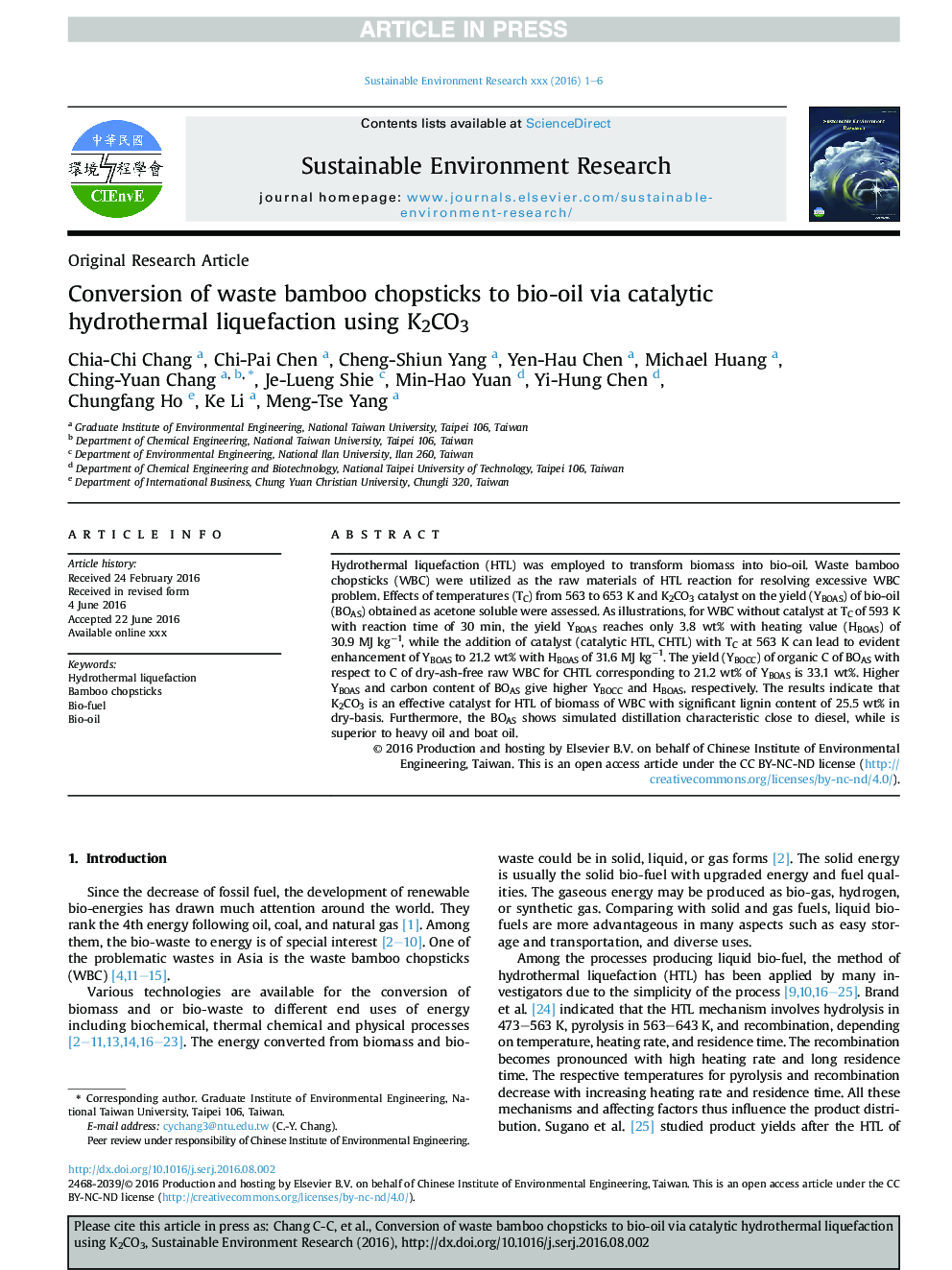| Article ID | Journal | Published Year | Pages | File Type |
|---|---|---|---|---|
| 8862990 | Sustainable Environment Research | 2016 | 6 Pages |
Abstract
Hydrothermal liquefaction (HTL) was employed to transform biomass into bio-oil. Waste bamboo chopsticks (WBC) were utilized as the raw materials of HTL reaction for resolving excessive WBC problem. Effects of temperatures (TC) from 563 to 653Â K and K2CO3 catalyst on the yield (YBOAS) of bio-oil (BOAS) obtained as acetone soluble were assessed. As illustrations, for WBC without catalyst at TC of 593Â K with reaction time of 30Â min, the yield YBOAS reaches only 3.8Â wt% with heating value (HBOAS) of 30.9Â MJÂ kgâ1, while the addition of catalyst (catalytic HTL, CHTL) with TC at 563Â K can lead to evident enhancement of YBOAS to 21.2Â wt% with HBOAS of 31.6Â MJÂ kgâ1. The yield (YBOCC) of organic C of BOAS with respect to C of dry-ash-free raw WBC for CHTL corresponding to 21.2Â wt% of YBOAS is 33.1Â wt%. Higher YBOAS and carbon content of BOAS give higher YBOCC and HBOAS, respectively. The results indicate that K2CO3 is an effective catalyst for HTL of biomass of WBC with significant lignin content of 25.5Â wt% in dry-basis. Furthermore, the BOAS shows simulated distillation characteristic close to diesel, while is superior to heavy oil and boat oil.
Related Topics
Life Sciences
Environmental Science
Environmental Engineering
Authors
Chia-Chi Chang, Chi-Pai Chen, Cheng-Shiun Yang, Yen-Hau Chen, Michael Huang, Ching-Yuan Chang, Je-Lueng Shie, Min-Hao Yuan, Yi-Hung Chen, Chungfang Ho, Ke Li, Meng-Tse Yang,
